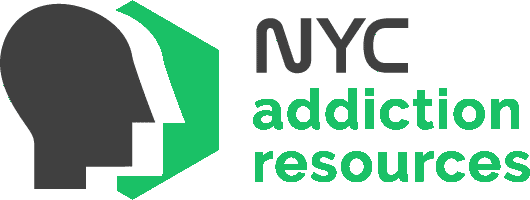
Medication-Assisted Treatment Programs
The first part of treating addiction is to lessen cravings and reduce withdrawal symptoms. There are numerous ways to do this in your recovery. You might attend a detox program that offers medical monitoring. You could also participate in one of the many medication-assisted treatment programs. If you choose MAT, it is a good idea to learn more about the program.
MAT is a treatment program many people choose to start on their recovery journey. If you already know you want to participate in this program, be sure to contact us. We can help you enroll today. If you want more information about MAT programs, this information will help.
Benefits of Medication-Assisted Treatment Programs
Before attending a medication-assisted addiction recovery treatment program, you probably want to know what benefits you will receive from it.
Some of the many benefits of MAT programs include:
- Helping you to achieve and maintain a more successful recovery
- Receiving a combination of addiction treatment services
- Increase your chances of surviving the addiction
- Lowering your risk of relapsing
- Decreasing your negative behaviors and replacing them with positive behaviors
- Increasing your ability to get a long-term job
- Improving the chances of having a healthy birth (for women who are pregnant
Are you looking for these benefits and more? If so, a MAT program that offers Suboxone, Vivitrol, or other medications could be right for you.
Medications Commonly Used in MAT Programs
Do you plan to attend a medication-assisted treatment program? If so, it might be helpful to know more about the common medications doctors use in these programs.
Some of the most common medications you might receive when attending this type of program include:
- Methadone
- Suboxone or Buprenorphine
- Vivitrol or Naltrexone
- Sublocade
It is also good to learn more about these medications before taking them in a MAT program.
Use of Methadone in MAT
Methadone is a common medication that doctors prescribe in medication-assisted treatment programs. It is an agonist. Agonists combine the nervous system and brain receptors to create effects the patient wants.
With the example of addiction recovery, the patient will experience less severe withdrawal symptoms. In addition, you won’t crave opioids.
Doctors will generally give patients Methadone once each day in a MAT program. However, each patient has their custom treatment plan, which means you might have a different dosage. Methadone does need time to build up in your system, so the dosage is usually low at the start of treatment.
Use of Suboxone or Buprenorphine in MAT
If you attend one of the medication-assisted treatment programs, you may receive Suboxone or buprenorphine. Suboxone is not a full agonist, which means it won’t fully bind to the opioid receptors.
Suboxone has naloxone and buprenorphine in it. Doctors use this medication to reduce physical withdrawal symptoms. They also use it to help reduce the opioid cravings patients have.
If you happen to abuse prescription pain medications or illegal drugs while taking Suboxone, you will experience adverse effects. For example, you might feel extremely ill. The adverse effects deter you from wanting to use opioids in the future.
Use of Vivitrol or Naltrexone in MAT
Vivitrol or Naltrexone is an antagonist. Antagonists prevent cravings for a specific timeframe. Generally, Vivitrol is given once every month during MAT.
If a doctor prescribes you Vivitrol during medication-assisted treatment, you will have fewer cravings and less severe withdrawal symptoms. If you use drugs while you have Vivitrol in your system, the medication can help prevent you from overdosing.
Use of Sublocade in MAT
Another medication that doctors might prescribe in MAT is Sublocade. When you take this medication, it helps to minimize or get rid of euphoric feelings. Many patients who take Sublocade find they have very few cravings.
Once this medication goes into your system, you may find that you feel normal. You may not have any desire to use opioids.
When a patient takes Sublocade in MAT and receives therapy and medical support, they have a better chance of achieving success in recovery.
If you decide to enroll in medication-assisted treatment, you will first meet with the admissions team. They will talk to you about your addiction history, the substance of choice, and some other aspects of your life. From there, they can determine which medications you should have in your treatment plan.
Other Things You May Receive in MAT
You will receive some medications in MAT. However, there are also other services you may receive in a medication-assisted treatment program. Some of these addiction recovery services include:
- STD screenings
- Educational workshops and seminars
- Educational materials and books
- Physical examinations
- Job readiness resources
- Psychological assessments
If you receive any of these services and medications, your chances of a successful recovery increase significantly.
Get help with your addiction. Contact us to enroll in one of the medication-assisted treatment programs today.


